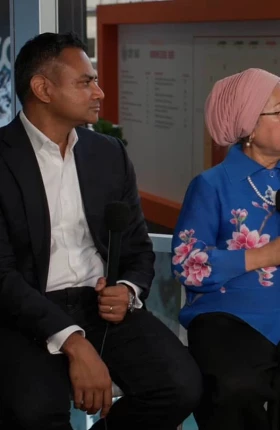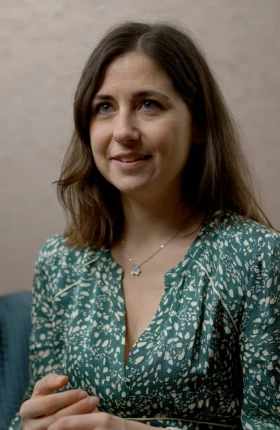BCG has quantified the staggering cost of inaction on climate. To avoid worst-case scenarios, the private sector and other stakeholders must ramp up their collaboration.
Featured Insights
Climate Adaptation and Resilience

Article
September 9, 2024

Article
July 23, 2024
Action to enhance adaptation and resilience is urgently needed. A new approach for tracking the impact of a country’s A&R investments could unlock investment.

Leaders from both the public and private sectors must take bold action to protect communities, organizations, and natural systems from the impacts of climate change. A new generation of data-driven and digital technologies will play a central role in this effort.

Article
December 6, 2023
The imperative for adaptation and resilience investment has always been clear. Now, finally, so is the business case.
Sustainable Investing and ESG

Article
November 30, 2023
Financial institutions have a major business opportunity in social impact. A global BCG survey reveals what’s standing in their way—and how they can up their game.

Article
December 14, 2022
Financial institutions that lead on social tend to outperform. But there is no “net zero” for social—and banks are struggling to seize the opportunity.

Article
September 24, 2024
By 2030, BCG estimates that companies will spend up to $3 trillion on adaptation and resilience. Banks are uniquely positioned to offer advice and capital.

BCG and UN Global Compact Network Singapore partnered to bring insights from the 2024 CEO Roundtable to drive progress in key areas including climate action, living wages, and sustainable finance.
Global Health

Article
November 18, 2024
Extreme weather events such as cyclones and floods will drive increases in the incidence of sickness and death from malaria in Africa, according to a new study.

Article
January 4, 2024
BCG conducted a study of more than 70 organizations—including philanthropies, multilateral development banks, government agencies, nongovernmental organizations, private sector actors, and others—to understand how key stakeholders are approaching the climate-health challenge.
Video
December 4, 2023
Human Health Depends on Planetary Health
Too often is it taken for granted that the environment is a massive determinant of human well-being. Putting health at the center of our climate discussions is critical.
Video
June 12, 2023
How Can Health Care Be Socially Transformative?
BCG’s Johanna Benesty explains that, while businesses in every sector have the potential to be socially transformative, the opportunity in healthcare is particularly great.
The Sustainable Advantage: Insights on Creating Competitive Advantage Through Sustainability
Economic Development

Article
April 25, 2024
BCG collaborated with Mastercard and Nubank to analyze consumer data and insights across the Brazilian market to map the financial inclusion journey and provide a framework for financial inclusion.

Article
November 4, 2022
The continent is rich in youthful, entrepreneurial energy. Well-planned investments now can help Africa transform itself into a global center of technological and ecological innovation.

Article
August 29, 2022
Africa is setting its sights on a future shaped by a young population, rapid urbanization, climate change, growing digital capacity, regional cooperation, and entrepreneurial innovation.
Humanitarian Response
Video
December 4, 2023
Migration in the Spotlight
The climate crisis is already displacing millions, and the problem is poised to get worst. Is enough being done? How can the public and private sectors come together to address this issue?

Recovery efforts in Ukraine hinge on the country's capacity to absorb technical and financial support. BCG and The European Investment Bank recommend key frameworks and principals for maximizing the economic and social impact of these efforts, as well as strategies for prioritizing funding and support.

Report
December 8, 2022
Companies must deploy three strategies—centered on global talent, cross-border innovation, and taking a stand for human rights—to maximize value from migration.
Video
July 14, 2020
The Private Sector's Role in Humanitarian Crises
David Young clarifies the private sector's role in preparing for humanitarian crises for the good of the business, its employees, and the country in which it operates.
BCG on Social Impact
Follow BCG on Social Impact on LinkedIn to explore how organizations are advancing the SDGs and how the growth of your business can have a positive societal impact.
Food Systems and Security

Article
March 20, 2024
Worldwide consumption of refined grains contributes significantly to diet-related disease and malnutrition. Production of these grains creates serious environmental damage. A powerful antidote to these problems is fortified whole grains.

Report
February 7, 2024
Regenerative agriculture is one of the most effective ways to lower Denmark’s CO2e footprint and improve the sustainability of its agriculture sector.

Article
November 7, 2022
The cost of food is rising rapidly, and hunger is on the increase. What will it take to build a better way to feed the world?

Article
May 17, 2022
In the wake of Russia’s invasion of Ukraine, our global food systems are struggling to feed those most at risk.
Inclusive Advantage

Article
June 11, 2024
Organizations can focus their attention on just these four areas to diagnose where they may be falling short in their efforts to meet employees’ needs.

Talent can be hard to source and retain, even as segments of the US population lack access to satisfying, supportive jobs. Three initiatives are making a difference.

Article
March 6, 2024
Private equity and venture capital firms whose ownership is predominantly women or people of color may unlock access to differentiated deal flow for their investors.

Article
November 3, 2023
Investors often misperceive—and therefore overlook—an ethnic group that’s a growing economic powerhouse in the US.









